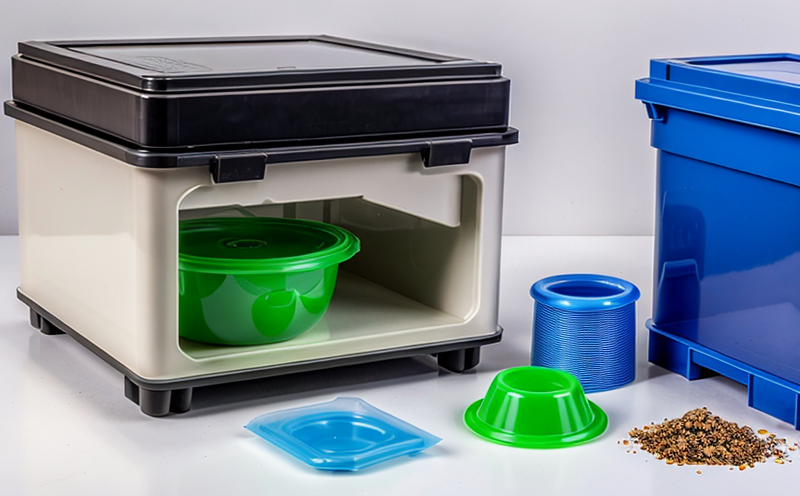EN 71-3 Plastics Packaging Migration of Heavy Metals Testing
The EN 71-3 standard is a European Union regulation that sets out requirements for the safety of toys and similar articles intended or likely to be used by children. This includes ensuring that no hazardous substances, including heavy metals like lead, cadmium, chromium, mercury, and others, are present in concentrations that could pose a risk to human health.
Packaging plastics often come into direct contact with foodstuffs or other consumer goods meant for children. Therefore, it is crucial to ensure that any plastic packaging does not migrate harmful heavy metals into the contents it contains. This testing service ensures compliance with this regulation by measuring the migration of heavy metals from packaging materials.
The testing process involves several steps:
- Sample preparation
- Solution extraction using appropriate solvents
- Analysis via atomic absorption spectrophotometry (AAS) or inductively coupled plasma optical emission spectroscopy (ICP-OES)
- Determination of the concentration of heavy metals present
Our laboratory uses state-of-the-art instrumentation, including ICP-OES and AAS spectrophotometers, to perform accurate measurements. The results are compared against the specified limits set out in EN 71-3 for each type of metal being tested.
| Heavy Metal | Solvent Used (mg/L) | Maximum Allowable Concentration in mg/kg of the product |
|---|---|---|
| Cadmium (Cd) | Ethanol 96%, Ethylene Glycol Monoethyl Ether, Propylene Glycol Monomethyl Ether | 10 mg/kg |
| Lead (Pb) | Ethanol 96%, Ethylene Glycol Monoethyl Ether, Propylene Glycol Monomethyl Ether | 90 mg/kg |
| Cobalt (Co) | Ethanol 96% | 150 mg/kg |
| Manganese (Mn) | Ethanol 96%, Ethylene Glycol Monoethyl Ether, Propylene Glycol Monomethyl Ether | 450 mg/kg |
The testing process is rigorous and requires meticulous attention to detail. It begins with the careful selection of appropriate solvents based on the type of plastic being tested, followed by thorough sample preparation. After extraction, the solutions are analyzed using precise instrumentation. Our laboratory personnel are trained experts who ensure that every step adheres strictly to EN 71-3 guidelines.
The importance of this testing cannot be overstated. Non-compliance with these standards can lead to serious health risks for children and could result in product recalls, legal issues, and significant reputational damage. By partnering with us, you ensure that your products meet the highest safety standards set by international regulations.
Eurolab Advantages
- State-of-the-art analytical equipment for accurate and reliable results
- Experienced and certified laboratory personnel
- Comprehensive quality control measures to ensure accuracy and consistency
- Quick turnaround times without compromising on the quality of testing
- Dedicated customer support team available 24/7 for any queries or concerns
We pride ourselves on providing exceptional service, ensuring that our clients receive high-quality results delivered promptly. Our commitment to excellence has earned us a reputation as one of the leading laboratories in Europe.
Why Choose This Test
- To comply with EN 71-3 regulations for packaging plastics used in contact with food or other consumer goods intended for children
- To protect the health and safety of children by ensuring that no harmful heavy metals migrate into the contents they contain
- To avoid potential legal issues, product recalls, and reputational damage associated with non-compliance
- For peace of mind knowing that your products meet the highest international standards
Frequently Asked Questions
Use Cases and Application Examples
This testing service is particularly important for companies involved in the production of food packaging, toys with components made from plastics, or any other consumer goods that come into direct contact with children. Here are some examples:
- Packaging for baby formula and other infant foods
- Plastic toys designed to be chewed on by infants
- Bottles, cups, and containers used in nurseries or kindergartens
- Any plastic component that could potentially come into contact with a child’s mouth or skin





